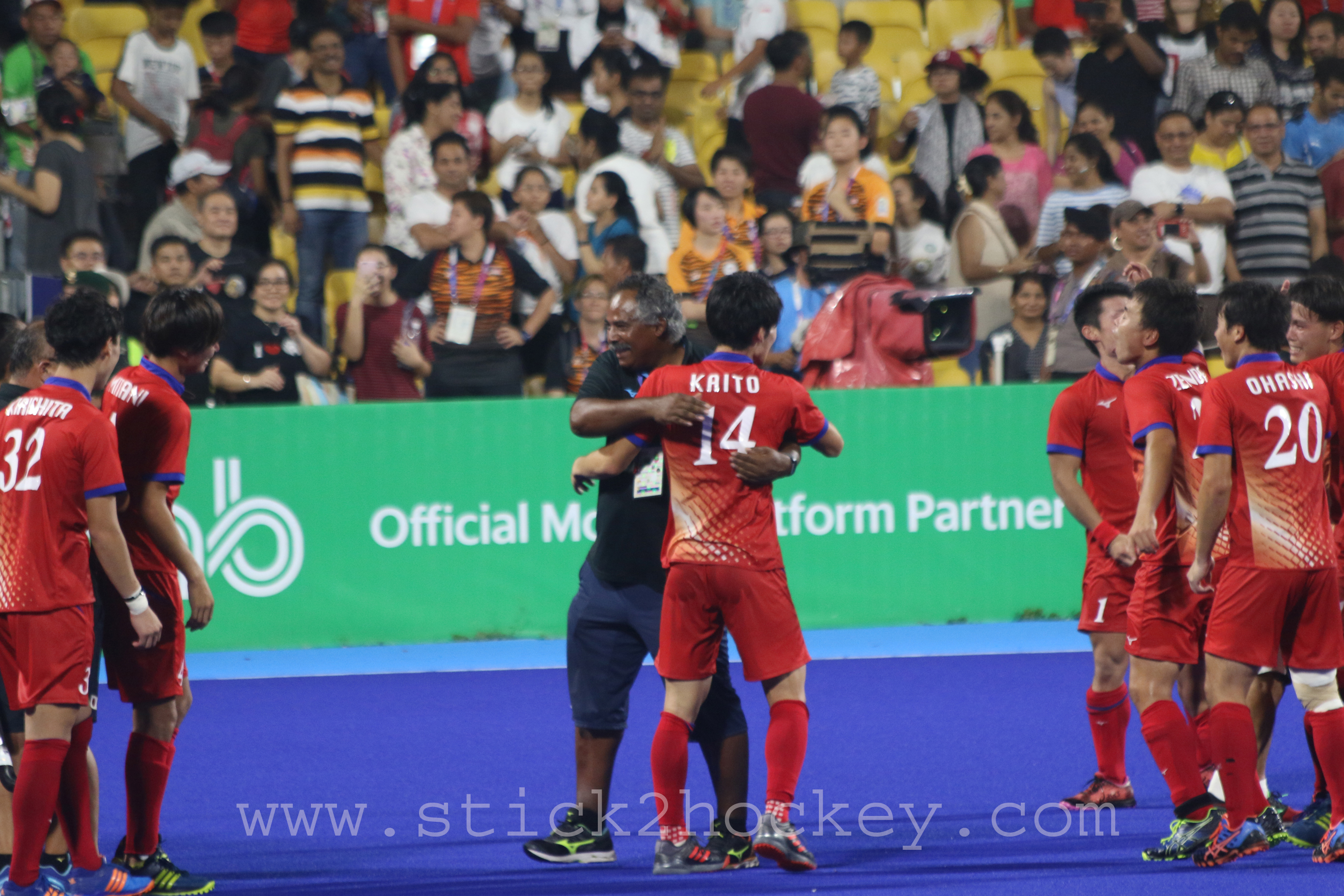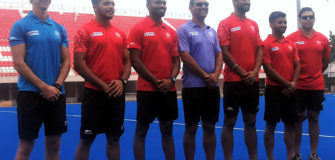Share
Siegfried Aikman, Japan’s Dutch coach of Surinamese origin, gazed at the blue artificial surface. His visage was grim but
his eyes beamed with expectancy. He knew his team was right in it despite the odds in the 2018 Asian Games gold medal match against Malaysia at the GBK Hockey Field in Jakarta.
The Dutchman was dead right. Japan carved out an unbelievable victory via the shootout after trailing 2-5 deep into the fourth quarter to tie the match 6-6 with just seconds to go. A 3-1 verdict in the tie-breaker completed one of sports’ greatest comebacks.
Down 2-4 during the third quarter, Japan braved injury as Shota Yamada took a full-blooded smack by the ball on the back
of the head. Then, first-man-out at a penalty corner Suguru Hoshi hobbled off with a knee injury.
To make matters worse, Japan were reduced to 10 men three minutes into the fourth quarter when Manabu Yamashita collected
a yellow card.
Aikman, however, kept the faith. His tutelage had produced many bright spots for Japan. A 3-2 win over World Cup champions Australia
at the 2017 Sultan Azlan Shah Cup in Ipoh, Malaysia. And four victories over Pakistan including a 1-0 win in the Jakarta
campaign which brought his team into the final.
Before that, Japan showed nerves of steel in a must-win game against South Korea to make the semifinals behind India.
They won 3-2 thereby showing resilience in recovering from a devastating 0-8 defeat to India in just the previous match.
So, during the short break before the fourth and final quarter, he spoke in a characteristic soft tone but loud enough
for TV microphones to pick up: “In the next 15 minutes, you have to give everything,” he said. “Make easy passes. If they (Malaysia) have the ball, you must put them under continuous pressure.”
Aikman called for simplicity and his team responded in style. They already had conquered the midfield, helped to a large
extent by the opponents sitting back.
But on a counter-attack, Malaysia made it 5-2 with 10 minutes to go.
Aikman, though, continued to look hopeful in the dugout. The Dutchman knew he had the right cog in the wheel. A forward
called Kenta Tanaka. A man who could do no wrong on the day.
And he perhaps had faith in his team’s enterprise. Especially at penalty corners. Japan scored two goals in the fourth
quarter through the set-piece. Both delightful variations.
The resurgence began with a fine field goal by Keito Tanaka in the 52nd minute to make it 3-5. The effervescent Kenta
Tanaka scored his second by blasting the ball home after a fine penalty corner variation to make it ‘game on’ in the 53rd
minute. Koji Yamasaki then equalized in the 58th minute with a stupendous deflection from a free-hit.
The epic comeback seemed to go in vain. Malaysia regained the lead with less than two minutes to go with Tengku Tajuddin
flicking home a penalty corner for his third goal.
But Japan, speed, verve and spirit to match, probably had Aikman’s words ringing in their ears — albeit via the
interpreter’s voice.
The equalizer 13 seconds from the end took the opposition completely by surprise. At a penalty corner, Japan played the
drag flick deliberately wide and had the Malaysia first-man-out stranded in no-man’s-land. The element of surprise
vanquished Malaysia’s 38-year-old stalwart in goal Kumar Subramaniam who blocked well but in vain. Ochiai gleefully
slotted home to take the contest into the shootout.
The rest is a piece of history which Aikman expects his players to remember for the rest of their lives.
As much as technical expertise inspired by a coach of lofty credentials in the Netherlands and with the FIH, it was
spirit and belief instilled in his team by Aikman that made for an astonishing comeback. And it landed the Japanese men their first ever Asian Games gold medal to emulate their women’s team who beat India 1-0 a day before.
Aikman whose lineage goes back to Lucknow and Bihar also reportedly reveres Japanese culture and the spirit of the
Samurai.
His first stint with Japan ended when the campaign fell short of 2012 London Olympic qualification. Jakarta 2018 was a
personal comeback as much as a fairy tale triumph by Aikman and team.





